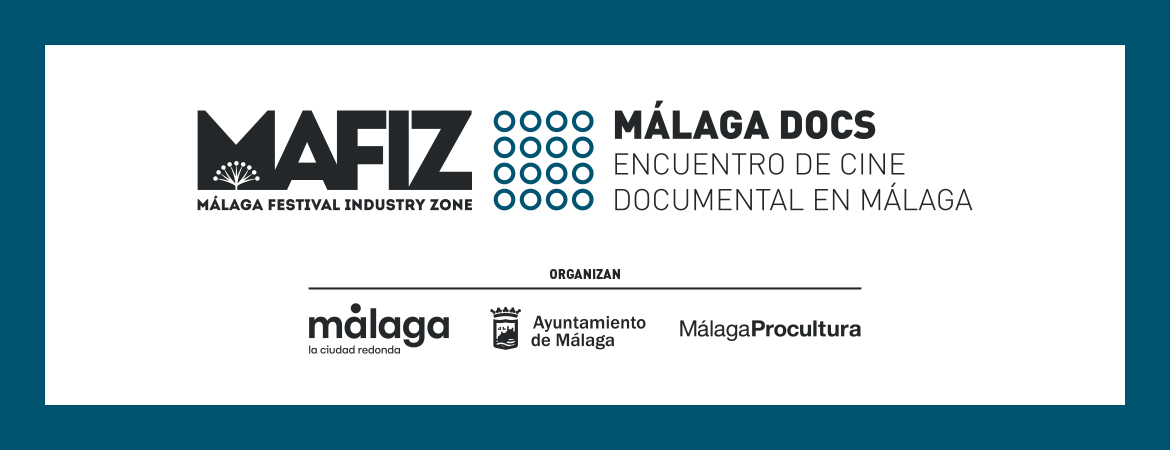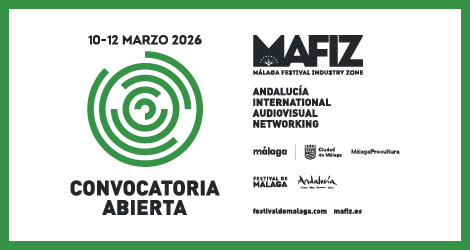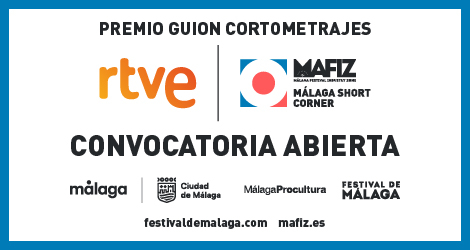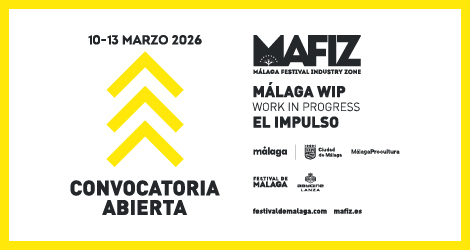
Malaga Docs returns to MAFIZ, the Malaga Film Festival’s industry zone
The event will revolve around the publication of the collective book ‘El documental en España. Historia, estética e identidad’ [Documentaries in Spain: History, Aesthetics and Identity]
Following the restrictions imposed on the Festival during the pandemic, this year the activities of Malaga Docs, one of its major events for researchers and fans of documentaries, will resume on Monday, March 13th and Tuesday, March 14th.
Malaga Docs is part of the Malaga Film Festival’s industry zone (MAFIZ), and this year will revolve around the recent publication of the collective book El documental en España. Historia, estética e identidad [Documentaries in Spain: History, Aesthetics and Identity] by Cátedra and the Malaga Film Festival, with the coordination of Casimiro Torreiro and Alejandro Alvarado.
Malaga Docs’ objective is to supplement the book’s 540 pages and historical perspective of Spanish documentaries for more than a century, and to celebrate its publication, going over the main developments of non-fiction in Spain and its current trends.
Thus, aesthetic, identity and historical aspects linked to profiles, geographies and industrial challenges will be addressed from a common, reflective regard at the consolidation of documentary film that is plural and heterogeneous.
This year Malaga Docs, a specialised encounter for the analysis of contemporary documentary film and reflection on the subject, is holding its eighth edition with the title En el espejo: una mirada compartida al cine documental en España [In the mirror: a shared regard at documentary film in Spain], incorporating some themes and concerns dealt with in the aforementioned book that will be discussed at roundtables in which renowned filmmakers and researchers of documentary film will participate.
Malaga Docs aims at accompanying, with the collaboration of the University of Malaga and the Centre for Ibero-American and Transatlantic Studies of the General Foundation of the University of Malaga, the contribution of the book coordinated by Torreiro and Alvarado for the sphere of academics and general knowledge in respect to a film genre to which the Malaga Film Festival is firmly committed.
Note should be made that the growing interest of academics and researchers for non-fiction in recent years has led to an interesting proliferation of local publications and historiographical revisions, of which the book and the event form part, proposing a genealogy of documentary practice from a transversal perspective.
This edition of Malaga Docs will thus comprise a series of roundtables, the times of which can be consulted at this link: https://mafiz.es/es/evento/conferencias-y-actividades-paralelas/actividades.
At one of these roundtables, the filmmaker Margarita Ledo (University of Santiago de Compostela) and Josep Maria Català (Universitat Autònoma of Barcelona), authors of the book’s preface and epilogue, respectively, will ask themselves if (documentary) cinema “can still move the world”, and will analyse the present moment of non-fiction.
In addition, another roundtable entitled La mirada interior. Sociedad y márgenes en el documental [The inner regard: society and its fringes in documentaries] will focus on the “marginal” character of documentary films in contrast with fiction films in the industry. In this sense, at a roundtable moderated by Marta Selva (Mostra Internacional de Films de Dones. Drac Màgic), Laura Gómez Vaquero (University of Salamanca) and Laia Quílez (Universitat Rovira i Virgili of Tarragona) will address the utility of documentaries to consider social changes in Spain, and their importance as a space to express different subjectivities and as an activating element of the said changes.
The roundtable entitled La mirada exterior. Una imagen del mundo desde el documental español [The exterior regard: an image of the world through Spanish documentaries] will reflect on how the portrait of local reality appears to be determined, to a large extent, by an exterior regard linked to the geopolitical relationships with territories that are a priority for Spain, such as Europe, Ibero-America and the Maghreb, all of them recorded in Spanish documentary productions. The researchers Manuel Palacio (University Carlos III of Madrid), Jorge Oter (Tecnocampus-Universitat Pompeu Fabra) and Joan Miquel Gual (Universitat Oberta de Catalunya), moderated by Casimiro Torreiro (University Carlos III of Madrid / Malaga Film Festival), will discuss Spanish documentaries throughout history and the genre’s glances onto the world.
On the second day of the event, Núria Araüna (Universitat Rovira i Virgili), Beli Martínez (Productora Filmika Galaika / University of Vigo) and Vanesa Fernández Guerra (Director of ZINEBI), moderated by the filmmaker Alejandro Alvarado (University of Malaga), will reflect on territorial and cultural decentralisation of documentaries in Spain since the beginning of the 21st century, with Catalonia as one of its main focal points of production. This roundtable, entitled Reflejos centrífugos: imagen y expresión de un Estado plural [Centrifugal reflections: image and expression of a pluralistic State], will highlight the enrichment of cinema of reality in Spain as a result of the appearance of a pluralistic and diverse cinematography whose major strength lies in its different regional expressions.
Lastly, Al otro lado del espejo: coordenadas e impacto del cine documental en España [On the other side of the mirror: coordinates and impact of documentary film in Spain], the roundtable moderated by Concha Barquero, the event’s coordinator, will bring together María Luisa Ortega (Autonomous University of Madrid), Josetxo Cerdán (University Carlos III of Madrid), Sonia García López (University Carlos III of Madrid) and the filmmaker Guillermo G. Peydró (TAI Escuela Universitaria Artes) to reconsider one of the main issues addressed by the event, namely the impact of documentary film in Spain as a result of its history, academic research, the dissemination of its films, the situation of its filmmakers and the policies of financing.










